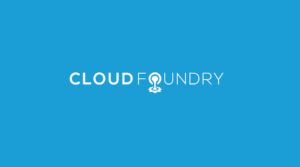Several parts of the Cloud Foundry PaaS utilizes a base operating system. The term for this OS is cflinuxfs. It is also typically suffixed with a number. This operating system is based on popular open source OS-es in the market. The most recent version of this is known as the cflinuxfs3.
The cflinuxfs3 stack was based on the Canonical Ubuntu Bionic Beaver 18.04 LTS version operating system. Support for Bionic is available only until April 2023. The current LTS version of Ubuntu is Jammy Jellyfish LTS 22.04. The community has decided to launch cflinuxfs4, which is dependent on Jammy. This deprecation is being done in order to take advantage of the latest features available and to prevent security issues and vulnerabilities associated with older versions from affecting users.
There is always a risk of incompatibilities emerging when using new versions. Therefore, you are encouraged to test your applications with cflinuxfs4 before releasing.
Similar migrations paths are also applicable to other parts of the Cloud Foundry platform. Stemcells, which are used in BOSH, are also subject to migration to the new LTS version of Ubuntu. Check this guide for details on how to migrate packages to Jammy-based stemcells and ascertain compatibility. Here’s the link to the cf-deployment release which switched over to the new Jammy stemcell.
The same principle applies to Buildpacks used by Cloud Foundry. They make use of a “stack” which is typically cflinuxfs3. In order to prevent any vulnerabilities, all users are advised to migrate their stack to cflinuxfs4. As of this writing, php and staticfile buildpacks are yet to migrate to the new Jammy-based cflinuxfs4. Once these two buildpacks roll out full support, cf-deployment will switch to cflinuxfs4 as the default stack.
Here’s a guide from one of the Cloud Foundry community members written for the SAP platform. Some of the information applies to all users across which derivative of Cloud Foundry they may be using.
The GitHub repo for the cflinuxfs4 stack is available here. For users who have any questions about the migration, we are always available for clarification on the topic of migrating to a Jammy-based option on the Cloud Foundry Slack.





